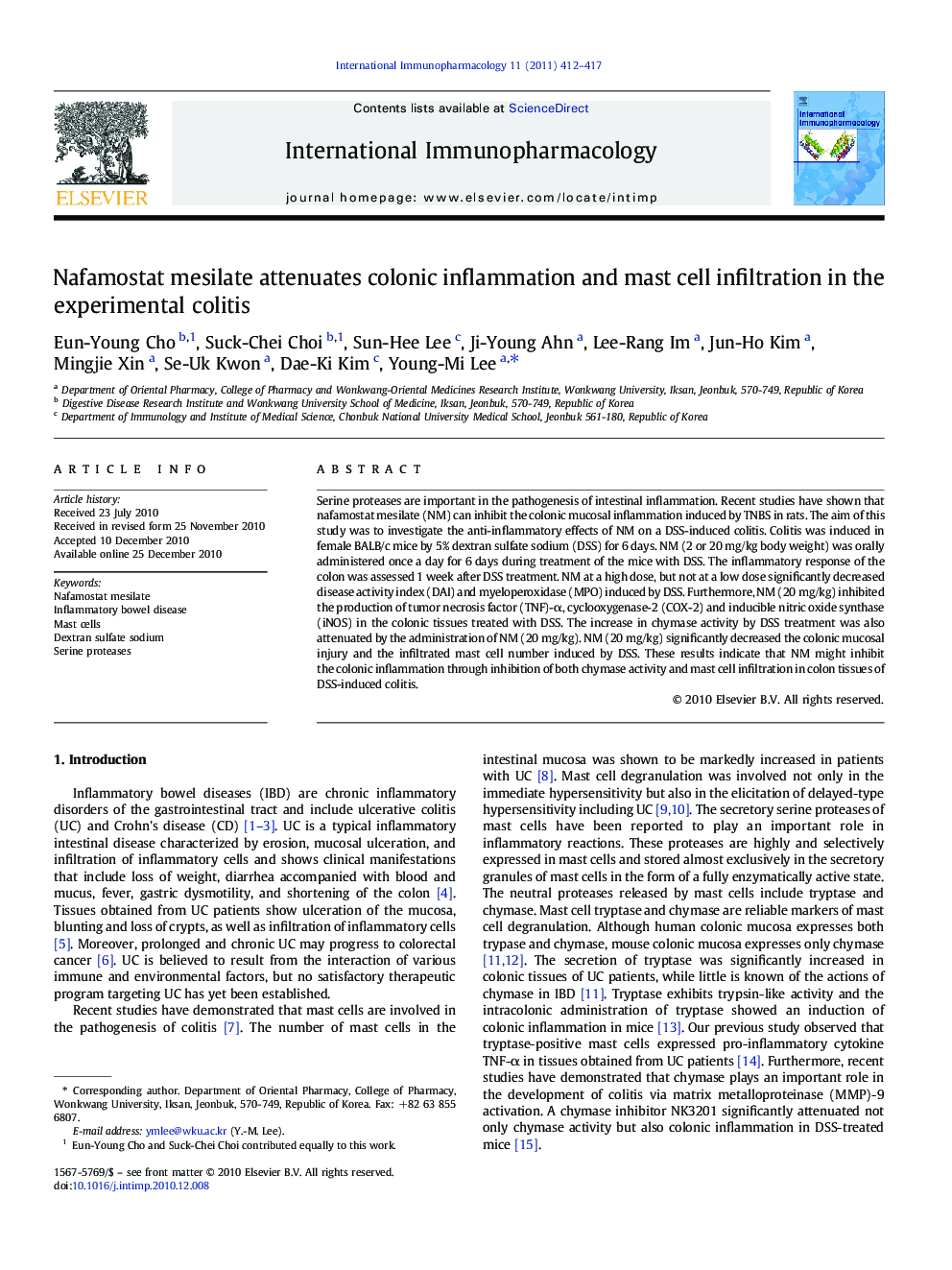| Article ID | Journal | Published Year | Pages | File Type |
|---|---|---|---|---|
| 2541289 | International Immunopharmacology | 2011 | 6 Pages |
Serine proteases are important in the pathogenesis of intestinal inflammation. Recent studies have shown that nafamostat mesilate (NM) can inhibit the colonic mucosal inflammation induced by TNBS in rats. The aim of this study was to investigate the anti-inflammatory effects of NM on a DSS-induced colitis. Colitis was induced in female BALB/c mice by 5% dextran sulfate sodium (DSS) for 6 days. NM (2 or 20 mg/kg body weight) was orally administered once a day for 6 days during treatment of the mice with DSS. The inflammatory response of the colon was assessed 1 week after DSS treatment. NM at a high dose, but not at a low dose significantly decreased disease activity index (DAI) and myeloperoxidase (MPO) induced by DSS. Furthermore, NM (20 mg/kg) inhibited the production of tumor necrosis factor (TNF)-α, cyclooxygenase-2 (COX-2) and inducible nitric oxide synthase (iNOS) in the colonic tissues treated with DSS. The increase in chymase activity by DSS treatment was also attenuated by the administration of NM (20 mg/kg). NM (20 mg/kg) significantly decreased the colonic mucosal injury and the infiltrated mast cell number induced by DSS. These results indicate that NM might inhibit the colonic inflammation through inhibition of both chymase activity and mast cell infiltration in colon tissues of DSS-induced colitis.
Research highlightsThe inflammatory response of the colon was assessed 1 week after DSS treatment in mice. ►NM at a high dose (20 mg/kg), but not at a low dose, significantly decreased disease activity index (DAI) and myeloperoxidase (MPO) induced by DSS. ►NM (20 mg/kg) inhibited the production of tumor necrosis factor (TNF)-α, cyclooxygenase-2 (COX-2) and inducible nitric oxide synthase (iNOS) in the colonic tissues treated with DSS. ►The increase in chymase activity by DSS treatment was also attenuated by the administration of NM (20 mg/kg). ►NM (20 mg/kg) significantly decreased the colonic mucosal injury and the infiltrated mast cell number induced by DSS. ►These results indicate that NM might inhibit the colonic inflammation through inhibition of both chymase activity and mast cell infiltration in colon tissues of DSS-induced colitis.
